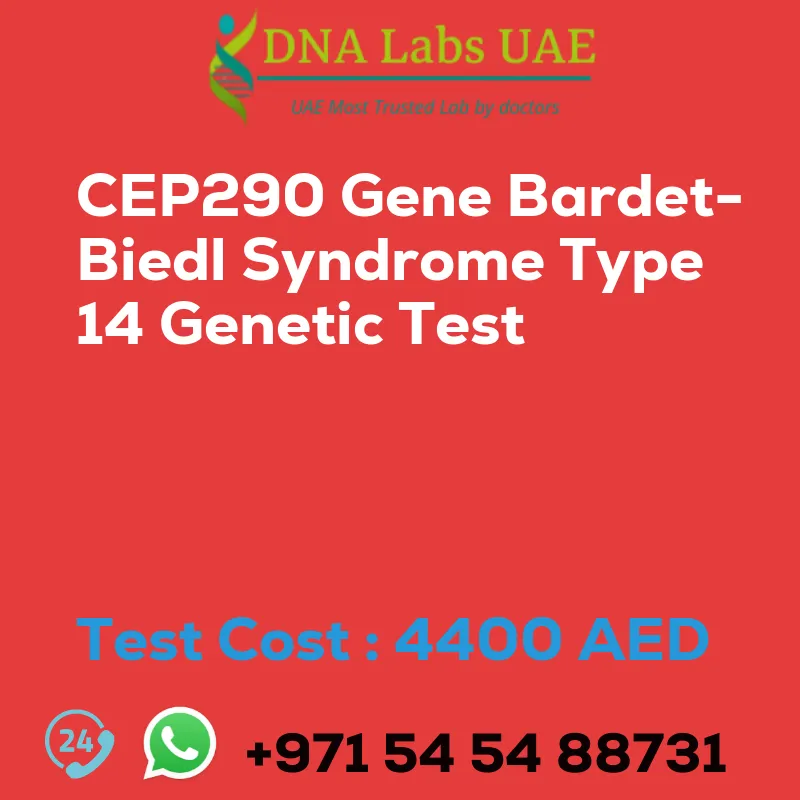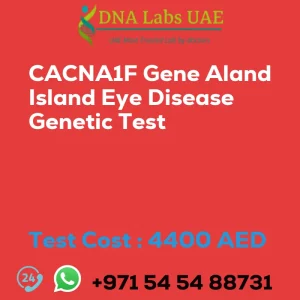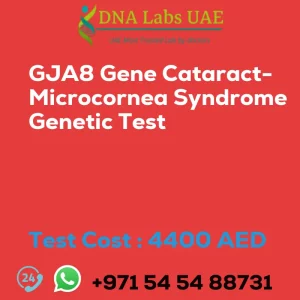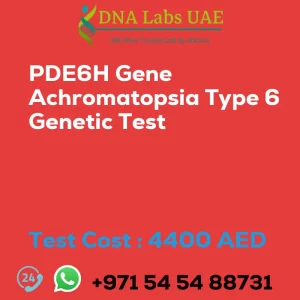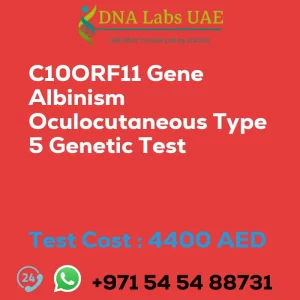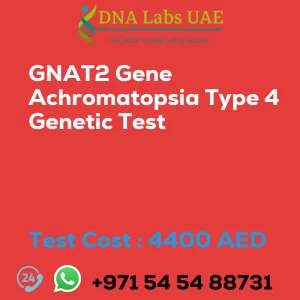CEP290 Gene Bardet-Biedl syndrome type 14 Genetic Test
Cost: 4400.0 AED
Test Components:
- Sample Condition: Blood or Extracted DNA or One drop Blood on FTA Card
Report Delivery:
3 to 4 Weeks
Method:
NGS Technology
Test Type:
Ophthalmology Disorders
Doctor:
Ophthalmologist
Test Department:
Genetics
Pre Test Information:
Clinical History of Patient who is going for CEP290 Gene Bardet-Biedl syndrome type 14 NGS Genetic DNA Test. A Genetic Counselling session to draw a pedigree chart of family members affected with CEP290 Gene Bardet-Biedl syndrome type 14 NGS Genetic DNA Test gene CEP290
Test Details:
The CEP290 gene is associated with Bardet-Biedl syndrome type 14, a rare genetic disorder that affects multiple parts of the body. This condition is characterized by obesity, vision loss, kidney abnormalities, and other symptoms.
NGS (Next Generation Sequencing) genetic testing can be used to analyze the CEP290 gene and identify any mutations or variations that may be causing Bardet-Biedl syndrome type 14. This type of testing is highly accurate and can detect even small changes in the genetic code.
If a mutation or variation is found in the CEP290 gene, individuals may be diagnosed with Bardet-Biedl syndrome type 14 and can receive appropriate medical care and genetic counseling. Testing may also be recommended for family members of affected individuals to determine their risk of developing the condition.
| Test Name | CEP290 Gene Bardet-Biedl syndrome type 14 Genetic Test |
|---|---|
| Components | |
| Price | 4400.0 AED |
| Sample Condition | Blood or Extracted DNA or One drop Blood on FTA Card |
| Report Delivery | 3 to 4 Weeks |
| Method | NGS Technology |
| Test type | Ophthalmology Disorders |
| Doctor | Ophthalmologist |
| Test Department: | Genetics |
| Pre Test Information | Clinical History of Patient who is going for CEP290 Gene Bardet-Biedl syndrome type 14 NGS Genetic DNA Test. A Genetic Counselling session to draw a pedigree chart of family members affected with CEP290 Gene Bardet-Biedl syndrome type 14 NGS Genetic DNA Test gene CEP290 |
| Test Details |
The CEP290 gene is associated with Bardet-Biedl syndrome type 14, a rare genetic disorder that affects multiple parts of the body. This condition is characterized by obesity, vision loss, kidney abnormalities, and other symptoms. NGS (Next Generation Sequencing) genetic testing can be used to analyze the CEP290 gene and identify any mutations or variations that may be causing Bardet-Biedl syndrome type 14. This type of testing is highly accurate and can detect even small changes in the genetic code. If a mutation or variation is found in the CEP290 gene, individuals may be diagnosed with Bardet-Biedl syndrome type 14 and can receive appropriate medical care and genetic counseling. Testing may also be recommended for family members of affected individuals to determine their risk of developing the condition. |

